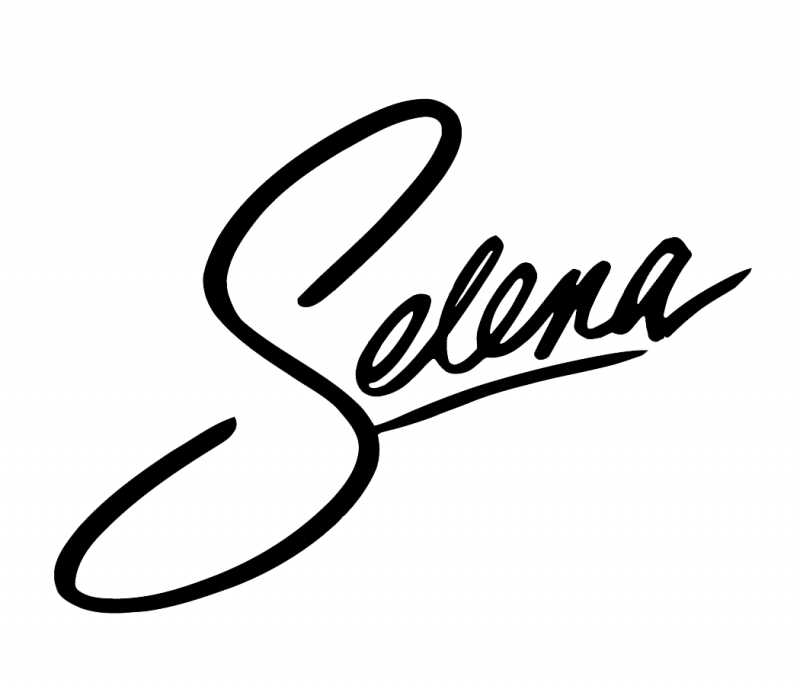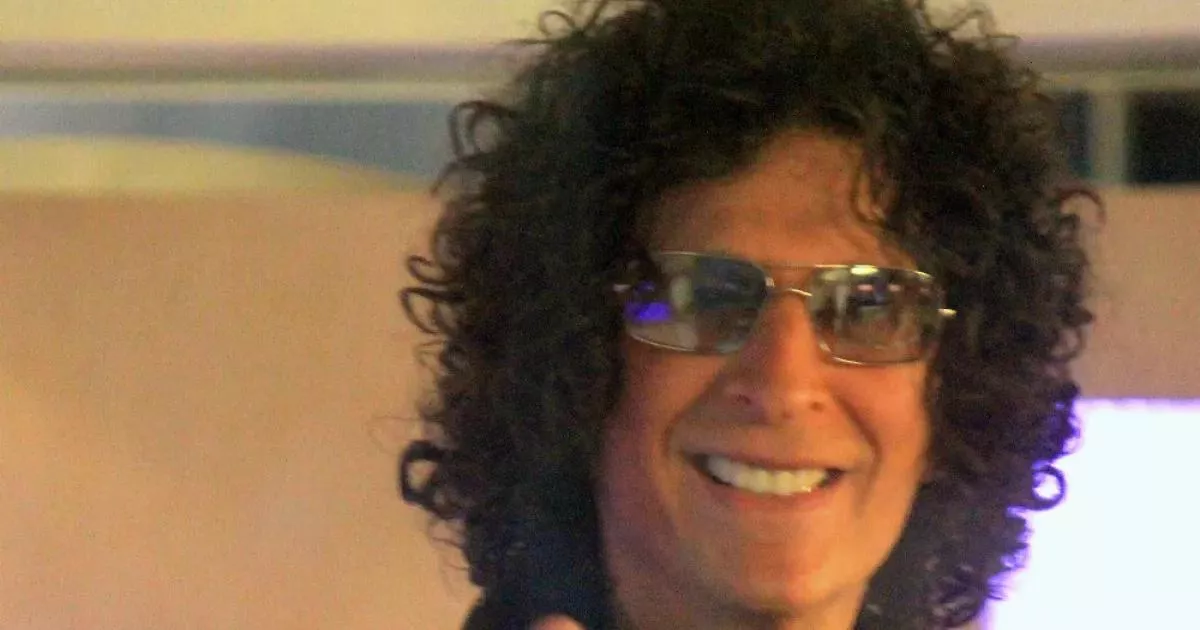Howard Stern is a renowned American radio personality, recognized for his provocative style on his show, "The Howard Stern Show". His show garnered significant popularity during its national syndication from 1986 to 2005. Since 2006, he has continued broadcasting on Sirius XM Radio.
1923: Birth of Ben Stern
Howard Stern's father, Ben Stern, was born in 1923.
1927: Birth of Ray Stern
Ray Stern (née Schiffman), Howard Stern's mother, was born in 1927.
January 12, 1954: Howard Stern's Birth
Howard Allan Stern was born on January 12, 1954.
1955: Relocation to Roosevelt, New York
In 1955, the Stern family moved to Roosevelt, New York, on Long Island, marking a change of scenery for the young Howard Stern.
June 1969: Move to Rockville Centre and High School Transition
In June 1969, the Stern family relocated to Rockville Centre. At 15, Stern began attending South Side High School, where he described himself as "a total introvert."
1972: College Enrollment and Early Radio Experience
Howard Stern enrolled at Boston University in 1972 to study communications, declining a place at Elmira College. He began working at the campus radio station, WTBU.
1972: High School Graduation
Howard Stern graduated from South Side High School in 1972.
1974: Admission to Boston University's School of Public Communications
In 1974, Stern was admitted to the School of Public Communications at Boston University, furthering his education in his chosen field.
July 1975: Obtaining a First-Class Radio-Telephone Operator License
Howard Stern obtained his first-class radio-telephone operator license in July 1975 from the Radio Engineering Institute of Electronics in Fredericksburg, Virginia, a crucial step toward his broadcasting career.
December 1975: First Professional Radio Job at WNTN
Howard Stern landed his first professional radio job at WNTN in Newton, Massachusetts, in December 1975, marking the start of his professional journey in broadcasting.
May 1976: Graduation from Boston University
Howard Stern graduated magna cum laude from Boston University in May 1976, earning a degree in broadcasting and film.
1976: Early Days at WRNW and Career Uncertainties
Howard Stern's early days at WRNW in 1976 were marked by uncertainty about his future in radio. He briefly ventured into advertising before ultimately returning to the station.
1976: Early Career and Radio Beginnings
Howard Stern's radio journey started in 1976, marking the beginning of his exploration in the broadcasting world.
November 1977: Promotion to Program Director at WRNW
Howard Stern's role at WRNW expanded in November 1977 when he was promoted to program director, signifying his growing influence and responsibilities at the station.
1979: Stern's Early Career at WCCC
In 1979, Howard Stern landed a job at WCCC in Hartford, Connecticut. He gained notoriety for his outrageous antics on-air, including using sound effects and incorporating comedy routines into his show. During the 1979 energy crisis, Stern even organized a listener boycott of Shell Oil Company, which garnered media attention.
1979: Release of "Rock 'n' Roll High School"
The film "Rock 'n' Roll High School" was released in 1979. Many years later, Stern acquired the rights to create a remake.
January 1981: Billboard Award and Format Change at WWWW
In January 1981, Howard Stern received recognition for his work at WWWW by winning a Billboard Award for Album-Oriented Rock Personality of the Year. However, the station struggled in the ratings and abruptly switched formats from rock to country music, leading to Stern's departure.
March 2, 1981: Arrival at WWDC and Partnership with Robin Quivers
Howard Stern joined WWDC in Washington, D.C. on March 2, 1981, where he was paired with news reporter Robin Quivers. This marked the beginning of their long-lasting on-air partnership.
July 1981: First Use of the Fartman Persona
According to a trademark filing by Stern in October 1992, he debuted his Fartman character in July 1981 at WWDC.
1981: Collaboration with Fred Norris
In 1981, Howard Stern began working with Fred Norris, who would become his longtime writer and producer.
January 1982: Rising Ratings and Second Highest-Rated Morning Show
By January 1982, Howard Stern's morning show at WWDC achieved the second highest ratings in Washington, D.C.
March 1982: Signing with WNBC and Contract Extension Conflict
In March 1982, Howard Stern signed a five-year deal with WNBC in New York City while still under contract with WWDC. This led to a strained relationship with WWDC management, whom he frequently criticized on-air.
April 1982: NBC Magazine Report and Management Concerns
In April 1982, NBC Magazine aired a critical report on shock radio, focusing on Howard Stern and his controversial show. This led to concerns from NBC executives and attempts to control Stern's content.
June 25, 1982: Termination from WWDC
Despite his success at WWDC, Howard Stern was terminated from the station on June 25, 1982. Although rumors circulated that his firing was due to a controversial bit about the Air Florida Flight 90 crash, Stern maintained that his termination was unrelated to the incident.
August 30, 1982: Start at WNBC and Early Conflicts
Howard Stern's time at WNBC began on August 30, 1982. However, he faced immediate scrutiny from management over his content, leading to suspensions and the implementation of a seven-second delay for censorship.
1982: Move to WNBC and Development of On-Air Persona
By 1982, Stern had cultivated his on-air persona through various morning positions at different radio stations, eventually landing at WNBC in New York City.
1982: Move to WNBC
Howard Stern expressed his excitement and ambition regarding his move to WNBC in 1982, seeing it as a major step in his career.
1982: Release of "Porky's"
The film "Porky's" was released in 1982. Many years later, Stern acquired the rights to create a remake.
May 21, 1984: Late Night with David Letterman Debut and People Magazine Feature
On May 21, 1984, Howard Stern made his first appearance on Late Night with David Letterman and was featured in People magazine, boosting his national visibility.
May 1985: WNBC Ratings Peak
In May 1985, Stern's show on WNBC reached its highest ratings in four years, capturing a 5.7% market share of the afternoon audience.
September 30, 1985: Firing from WNBC
On September 30, 1985, Stern and his co-host Robin Quivers were abruptly fired by WNBC management due to "conceptual differences", marking the end of Stern's time at the station.
October 1985: Signing with Infinity Broadcasting and WXRK Debut
Following his firing from WNBC, Stern announced in October 1985 that he had signed a five-year contract with Infinity Broadcasting to host a show on WXRK, which began in November of that year.
1985: CBS Acquires Rights to Stern's Early Shows
As part of the settlement with Stern, CBS acquired the rights to his radio shows dating back to 1985.
1985: New Beginnings and the Start of WXRK Era
In 1985, after departing from WNBC, Howard Stern began his influential 20-year run at WXRK in New York City, a pivotal moment in his career.
February 1986: Move to Morning Slot and Syndication Begins
In February 1986, Stern's show on WXRK moved to the highly competitive morning slot and in August of that year, the show began syndication with WYSP in Philadelphia.
1986: Film Debut in "Ryder, P.I."
Howard Stern appeared as an out-of-control newscaster named Ben Wah in the low-budget comedy film "Ryder, P.I." in 1986.
1986: The Howard Stern Show Goes National
In 1986, "The Howard Stern Show" began its national syndication on terrestrial radio, marking a significant milestone in Stern's career.
1986: Fox Network Pilots
Stern worked with Fox in late 1986 to potentially create a replacement show for "The Late Show" hosted by Joan Rivers, but Fox ultimately passed on the project.
1986: National Syndication and Rise in Popularity
The Howard Stern Show entered syndication in 1986, broadcasting across 60 markets and amassing a listenership of 20 million at its zenith, solidifying Stern's place as a prominent radio personality.
February 1988: "Howard Stern's Negligeé and Underpants Party"
In February 1988, Stern hosted his first pay-per-view event, "Howard Stern's Negligeé and Underpants Party", which attracted controversy due to Stern's jokes about drug use backstage.
October 1989: "Howard Stern's U.S. Open Sores" Event
Stern held a live event called "Howard Stern's U.S. Open Sores" in October 1989, which featured a tennis match between Stern and his producer Gary Dell'Abate at a sold-out Nassau Coliseum.
July 1990: "The Howard Stern Show" Premieres on WWOR-TV
July 1990 saw the debut of "The Howard Stern Show" on WWOR-TV, a Saturday night variety show hosted by Stern and featuring his radio show staff.
1990: Federal Communications Commission fines Howard Stern Show
In 1990, the Federal Communications Commission (FCC) began fining owners of radio station licensees that carried The Howard Stern Show for content it considered to be indecent. Over the years, these fines accumulated to a total of $2.5 million by 2004.
1991: "The Howard Stern Show" Enters Syndication
After initially airing as specials, "The Howard Stern Show" continued and entered syndication in 1991, reaching its peak with broadcasts in 65 markets nationwide.
1991: "Crucified by the FCC" Album Release
In response to fines from the Federal Communications Commission (FCC) regarding indecent content on his radio show, Stern released a compilation album titled "Crucified by the FCC" in early 1991.
October 1992: Simultaneous Number One in New York and Los Angeles, "Butt Bongo Fiesta" Release
October 1992 marked a significant period for Stern as he achieved the top spot in both the New York and Los Angeles morning radio markets. Additionally, he released the home video "Butt Bongo Fiesta" this month.
November 1992: "The Howard Stern "Interview" Premieres
Stern returned to Saturday night television in November 1992 with "The Howard Stern "Interview"", a one-on-one celebrity interview show that aired on the E! network.
1992: End of "The Howard Stern Show"
After 69 episodes, "The Howard Stern Show" concluded in 1992.
1992: Self-Proclaimed "King of All Media"
Howard Stern proclaimed himself the "King of All Media" in 1992, reflecting his success and influence beyond the realm of radio.
1992: Stern's 1992 MTV Music Video Awards Appearance
Howard Stern raised eyebrows with his 1992 appearance at the MTV Music Video Awards.
October 7, 1993: "Private Parts" Book Release
On October 7, 1993, Howard Stern released his first book, "Private Parts," which became an instant commercial success, selling out its entire first print of 225,000 copies within hours. The book, published by Simon & Schuster, marked a significant moment in Stern's career, demonstrating his economic clout and reaching the top of the New York Times Best-Seller list.
November 1993: Talks with Fox for Late-Night Show
Following the cancellation of Chevy Chase's late-night show in October 1993, Stern entered into discussions with Fox in November about potentially hosting a replacement show.
1993: "Most Influential Air Personality" Award
Howard Stern was recognized as the "most influential air personality of the past two decades" by Radio & Records magazine in their 1993 twentieth-anniversary issue.
1993: Private Parts: A Bestselling Autobiography
Howard Stern's autobiography, "Private Parts," hit the shelves in 1993, quickly becoming a New York Times Best Seller and selling over a million copies.
1993: "The Howard Stern "Interview" " Ends, "The Adventures of Fartman" Movie Canceled
In 1993, "The Howard Stern "Interview"" concluded. Additionally, the development of "The Adventures of Fartman", a movie based on Stern's superhero character, was halted due to disagreements between Stern and New Line Cinema.
December 31, 1993: "The Miss Howard Stern New Year's Eve Pageant"
Howard Stern's second pay-per-view special, "The Miss Howard Stern New Year's Eve Pageant," aired on December 31, 1993. The show, a mock beauty pageant, drew criticism, with the New York Post calling it "The most disgusting two hours in the history of television." Despite the controversy, it broke viewership records, highlighting Stern's knack for attracting a large audience.
February 1994: "Rolling Stone" Magazine Cover
In February 1994, Howard Stern was featured on the cover of "Rolling Stone" magazine, marking his first of three cover appearances. This recognition further solidified Stern's growing influence and popularity in the media landscape.
March 22, 1994: Candidacy for Governor of New York
On March 22, 1994, Howard Stern announced his candidacy for Governor of New York on the Libertarian Party ticket. His campaign, though unconventional, reflected some of his political views and garnered significant attention.
June 1994: Howard Stern Production Company Founded
In June 1994, Howard Stern established the Howard Stern Production Company to venture into film and television production. This move signaled Stern's ambition to expand his influence beyond radio and into other entertainment mediums.
1994: Top-Rated Morning Show in New York
From 1994 to 2001, Stern's show held the title of the highest-rated morning radio program in the New York market.
1994: Re-release of Comedy Album "Unclean Beaver"
Howard Stern's comedy album "50 Ways to Rank Your Mother," recorded with Fred Norris, was re-released as "Unclean Beaver" in 1994.
1994: Home Video Release of New Year's Eve Pageant
In early 1994, a home video version of Stern's controversial New Year's Eve pageant was released as "Howard Stern's New Year's Rotten Eve 1994." This release further extended the show's reach and solidified its place in Stern's history.
March 1995: Highway Rest Stop Naming
In a surprising turn of events in March 1995, newly elected New Jersey Governor Christine Todd Whitman named a highway rest stop after Howard Stern. This unusual gesture came after Stern urged his listeners to vote for Whitman, highlighting his influence extending into the political sphere.
April 3, 1995: Controversy Over Selena Comments
Howard Stern sparked outrage and calls for boycotts on April 3, 1995, following his insensitive remarks about the late singer Selena and Mexican Americans. This incident brought to light Stern's tendency to court controversy and the potential consequences of his provocative style.
August 1995: "Howard Stern Bill" Signed into Law
In August 1995, New York Governor George Pataki signed a bill limiting road construction to nighttime hours in New York City and Long Island. This legislation was dubbed the "Howard Stern Bill" as Stern had initially proposed the idea during his gubernatorial campaign, demonstrating his lasting impact on state politics.
November 7, 1995: "Miss America" Book Release
Howard Stern's second book, "Miss America," hit shelves on November 7, 1995. It delved into a range of personal experiences and opinions, including Stern's cybersex encounters, health issues, and political aspirations, once again propelling Stern to the top of bestseller lists.
November 30, 1995: Controversial Appearance on "The Tonight Show"
On November 30, 1995, Howard Stern's appearance on "The Tonight Show with Jay Leno" stirred controversy due to Stern's on-stage antics, which included bikini-clad women engaging in suggestive behavior. The incident led to host Jay Leno walking off stage, further cementing Stern's reputation for pushing boundaries on live television.
1995: Miss America: Another Literary Success
Howard Stern's second book, "Miss America," debuted in 1995, joining "Private Parts" as a New York Times Best Seller and surpassing a million copies sold.
February 1996: Production Begins on "Private Parts"
In February 1996, production for the movie adaptation of Stern's autobiography, "Private Parts," began. Stern was heavily involved in the process.
May 1996: "Private Parts" Filming Starts
Filming for the movie adaptation of "Private Parts" began in May 1996, directed by Betty Thomas and starring Stern, Quivers, and Norris.
February 27, 1997: "Private Parts" Premieres
On February 27, 1997, Howard Stern's biopic, "Private Parts," premiered at Madison Square Garden. He also performed "The Great American Nightmare" with Rob Zombie for the soundtrack.
March 7, 1997: "Private Parts" Released
Howard Stern's biopic, "Private Parts," was released widely on March 7, 1997, after a successful premiere.
March 1997: "Private Parts: The Album" Tops Charts
The soundtrack for "Private Parts" was released in March 1997 and debuted at number one on the Billboard 200 chart.
October 1997: Stern Sues Ministry of Film Inc.
Howard Stern filed a $1.5 million lawsuit against Ministry of Film Inc. in October 1997 for breach of contract, fraud, and negligent representation related to an uncompleted film project called "Jane."
1997: Private Parts: The Movie
The film adaptation of Howard Stern's autobiography, "Private Parts," hit theaters in 1997, topping the US box office on its opening weekend and achieving both commercial success and notoriety.
April 1998: Stern Returns to Saturday Night Television
In April 1998, Howard Stern announced his return to Saturday night TV with a deal with CBS to compete with "Saturday Night Live" and "MADtv."
August 22, 1998: "The Howard Stern Radio Show" Premieres on CBS
"The Howard Stern Radio Show," featuring taped highlights and new material, premiered on CBS on August 22, 1998, across 79 stations.
1998: Stern Wins Blockbuster Entertainment Award
Howard Stern won a Blockbuster Entertainment Award for Favorite Male Newcomer for his role in "Private Parts" in 1998.
March 1999: Stern Ranked on Forbes' Celebrity 100 List
Howard Stern ranked #27 on Forbes' first Celebrity 100 list in March 1999, with estimated earnings of $20 million that year.
June 1999: "The Howard Stern Radio Show" Loses Affiliates
By June 1999, "The Howard Stern Radio Show" had lost a significant number of affiliates due to concerns about its risque content, dwindling from 79 to 55 stations.
September 1999: UPN Announces "Doomsday" Animated Series
UPN announced an animated series called "Doomsday" in September 1999, produced by Howard Stern, but the show was never aired.
1999: Stern Settles Lawsuit with Ministry of Film Inc.
Howard Stern reached a settlement with Ministry of Film Inc. in 1999 for $50,000.
March 2000: "Son of the Beach" Premieres
"Son of the Beach," a Baywatch parody sitcom executive produced by Stern, premiered on FX in March 2000.
December 16, 2000: Stern Signs Five-Year Contract with Infinity Broadcasting
After four months of negotiations, Howard Stern announced his new five-year contract with Infinity Broadcasting on December 16, 2000.
October 2001: Stern Appears at The Concert for New York City
Howard Stern made a memorable appearance at The Concert for New York City in October 2001, wearing a hazmat suit with his buttocks exposed.
November 2001: CBS Considers "Kane" Sitcom
Howard Stern's production company began developing a sitcom called "Kane" for CBS in November 2001, with Ron Zimmerman writing the pilot, but the project was canceled.
November 17, 2001: "The Howard Stern Radio Show" Airs Final Episode on CBS
"The Howard Stern Radio Show" aired its final episode on CBS on November 17, 2001, after a decline in affiliates due to its controversial content.
2001: End of Top-Rated Reign in New York
Stern's show's reign as the highest-rated morning radio program in New York ended in 2001, after dominating the market for seven consecutive years.
October 2002: "Son of the Beach" Ends
"Son of the Beach" ended in October 2002 after three seasons on FX.
2002: Consecutive Wins: Nationally Syndicated Air Personality of the Year
From 1994 to 2002, Howard Stern consistently received the "Nationally Syndicated Air Personality of the Year" award from Billboard magazine, a testament to his enduring impact and appeal within the radio industry.
2002: Stern Acquires Rights to "Rock 'n' Roll High School" and "Porky's"
In late 2002, Howard Stern acquired the rights to remake the films "Rock 'n' Roll High School" and "Porky's."
March 2003: Stern Sues ABC Over "Are You Hot?"
Howard Stern filed a $100 million lawsuit against ABC, Telepictures, and the producers of "Are You Hot?" in March 2003, alleging the show copied his radio segment "The Evaluators."
February 1, 2004: Super Bowl XXXVIII Halftime Show Controversy
The controversial Super Bowl XXXVIII halftime show on February 1, 2004, sparked a government crackdown on indecency in broadcasting.
August 2004: Spike Orders "Howard Stern: The High School Years"
Spike TV ordered thirteen episodes of "Howard Stern: The High School Years," an animated series executive produced by Stern, in August 2004, but the project was later shelved.
October 6, 2004: Stern Announces Move to Sirius Satellite Radio
On October 6, 2004, Howard Stern announced his groundbreaking move to Sirius Satellite Radio, a subscription-based service free from FCC regulations.
2004: Landmark Sirius Deal and Highest-Paid Radio Figure
Howard Stern signed a groundbreaking five-year, $500 million contract with Sirius in 2004, making him one of the highest-paid radio personalities and marking a turning point in his career.
2004: FCC fines and scrutiny under Bush administration
In 2004, Howard Stern blamed the Bush administration for increased FCC fines and scrutiny of radio broadcasts following the Super Bowl XXXVIII halftime show controversy in February. That year, Stern began openly promoting John Kerry's presidential campaign and urged listeners to oust Bush.
December 16, 2005: Stern's Final Terrestrial Broadcast
Howard Stern's final live show on traditional terrestrial radio aired on December 16, 2005, marking the end of an era.
2005: "Howard Stern: The High School Years" Shelved
"Howard Stern: The High School Years" was shelved in 2005 despite having completed scripts and test animation due to budget concerns.
2005: Formation of Howard 100 and Howard 101
Howard Stern established two channels, Howard 100 and Howard 101, in 2005 as part of his Sirius programming.
2005: End of an Era: Terrestrial Run Concludes
Howard Stern's tenure on terrestrial radio ended in 2005, concluding a significant chapter in his broadcasting career.
January 9, 2006: Sirius Debut and Stock Awards
Howard Stern's first broadcast on Sirius took place on January 9, 2006. He and his agent received a substantial stock award for exceeding subscriber targets.
February 28, 2006: CBS Radio Sues Stern
CBS Radio filed a lawsuit against Howard Stern, alleging he improperly used company time to promote Sirius.
March 2006: Howard Stern On Demand Launches
Howard Stern launched "Howard Stern On Demand," a digital cable video-on-demand service, in March 2006 to broadcast uncensored content.
May 2006: Settlement Reached with CBS Radio
An out-of-court settlement was reached between Howard Stern and CBS Radio in May 2006, resolving the lawsuit over promotional activities.
June 2006: Time 100 and Forbes Celebrity 100 Recognition
Howard Stern was featured in Time magazine's Time 100 list and ranked seventh on Forbes' Celebrity 100 list in June 2006.
2006: Sirius Satellite Radio Era Begins
Howard Stern began broadcasting on Sirius XM Radio in 2006, embarking on a new phase of his career.
2006: Stern's Sirius Debut and the Dawn of a New Era
In 2006, Howard Stern began his tenure at Sirius Satellite Radio, ushering in what many consider "a new era of radio."
January 2007: Second Subscriber Bonus for Stern
In January 2007, Howard Stern received a second round of Sirius stock bonuses for meeting subscriber growth goals.
2008: SiriusXM Merger and Contract Clause Payment
When Sirius merged with XM Satellite Radio in 2008, Stern received a $25 million payout due to a clause in his contract.
December 2010: Stern Renews Contract with SiriusXM
Howard Stern signed a new contract with SiriusXM in December 2010, extending his radio show for another five years.
March 22, 2011: Stern Sues SiriusXM for Unpaid Bonuses
Howard Stern and his agent filed a lawsuit against SiriusXM, claiming they were owed $300 million in unpaid bonuses.
2011: "Porky's" Remake Halted
Development on the remake of "Porky's" was halted in 2011 due to legal issues surrounding the film's rights.
2011: Stern Explores Photography
Howard Stern delved into photography in 2011, shooting for magazines like Hamptons and WHIRL and establishing his own photography company.
2011: Stern Joins America's Got Talent
Howard Stern made his return to network television as a judge on "America's Got Talent" in 2011.
April 17, 2012: Lawsuit Against SiriusXM Dismissed
A judge dismissed Howard Stern's lawsuit against SiriusXM regarding unpaid bonuses, preventing further legal action on those grounds.
June 2012: High Earnings from June 2012-June 2013
Howard Stern's earnings between June 2012 and June 2013 placed him among the highest-paid television personalities.
2012: America's Got Talent Judging Stint Begins
Howard Stern joined the judging panel of "America's Got Talent" in 2012, showcasing his talents and opinions to a wider audience.
2012: Induction into the National Radio Hall of Fame
Howard Stern was inducted into the National Radio Hall of Fame in 2012, an organization he has openly criticized.
June 2013: Continued High Earnings in 2013-2014
Howard Stern maintained his position among the highest-paid television personalities for the period from June 2013 to June 2014.
August 2013: Tops Forbes' Highest-Paid TV Personalities
In August 2013, Forbes named Howard Stern and Simon Cowell the highest-paid television personalities in America.
December 2013: HowardTV Discontinued
HowardTV, the digital cable video-on-demand service, was discontinued in December 2013.
February 2015: Partnership with Whalerock Industries Announced
In February 2015, Howard Stern partnered with Whalerock Industries to develop a direct-to-consumer digital media platform.
September 2015: Stern Departs America's Got Talent
Howard Stern left his role as a judge on "America's Got Talent" in September 2015 to focus on his radio show.
October 2015: Stern's Controversial Remarks on Palestinians
Howard Stern's comments about Palestinians in October 2015 sparked controversy and were widely condemned as racist.
2015: World's Highest-Paid Media Personality
Forbes ranked Howard Stern as the world's highest-paid media personality and one of the top-earning celebrities globally in 2015.
2015: Conclusion of America's Got Talent Judging Role
Howard Stern's time as a judge on "America's Got Talent" came to an end in 2015, marking the conclusion of his involvement with the show.
April 2018: Stern Inducts Bon Jovi into Hall of Fame
In April 2018, Howard Stern inducted the band Bon Jovi into the Rock and Roll Hall of Fame.
March 2019: Stern Announces Third Book
In March 2019, Howard Stern revealed he was working on his third book, "Howard Stern Comes Again."
May 14, 2019: Release of "Howard Stern Comes Again"
Howard Stern's third book, "Howard Stern Comes Again," was released on May 14, 2019.
2019: Release of "Howard Stern Comes Again"
Howard Stern released his third book, "Howard Stern Comes Again," in 2019, marking his return to the literary world after a hiatus.
May 2020: Stern Criticizes Trump and Addresses Past Behavior
In May 2020, Howard Stern publicly criticized then-President Donald Trump and addressed his own past controversial behavior on his show, acknowledging personal growth through therapy.
December 2020: Stern Renews SiriusXM Contract
Howard Stern renewed his contract with SiriusXM in December 2020, committing to another five years of his radio show.
June 2022: Stern Expresses Interest in Presidential Run
Howard Stern expressed interest in running for President of the United States in 2024 if Donald Trump were to become the Republican nominee.
2022: Passing of Ben Stern
Ben Stern, Howard Stern's father, passed away in 2022.
April 2024: Stern Interviews President Biden
In April 2024, Howard Stern conducted a one-on-one interview with President Joe Biden.
2027: SiriusXM Secures Rights to Stern's Archives
Howard Stern's deal with SiriusXM, extending his show, also granted the company rights to his archives until 2027 for an on-demand streaming service.
Mentioned in this timeline

Donald John Trump is an American politician media personality and...

Selena Quintanilla-P rez known as Selena was an influential American...

Joe Biden is an American politician who served as the...
CBS Broadcasting Inc CBS is a prominent American commercial broadcast...

Bon Jovi formed in in New Jersey is an American...
Saturday Night Live SNL is a late-night live sketch comedy...
Trending

16 minutes ago Apolo Ohno Discusses Skating, Olympics, and Corinne Stoddard's Challenges.

16 minutes ago Jordan Stolz Dominates: Gold in Speed Skating at Winter Olympics 2026
16 minutes ago ClassPass Expands Movie Options: Adds Regal Cinemas, Marcus Theatres, and LOOK Dine-In.

17 minutes ago Caleb Love to be inducted into Arizona Ring of Honor at McKale Center.
1 hour ago From Fair Champion to Legal Champion: A Florida Success Story

1 hour ago Victoria Mboko surges into WTA 1000 final after defeating Ostapenko in Doha.
Popular

Kid Rock born Robert James Ritchie is an American musician...
The Winter Olympic Games a major international multi-sport event held...

Pam Bondi is an American attorney lobbyist and politician currently...

Barack Obama the th U S President - was the...

XXXTentacion born Jahseh Dwayne Ricardo Onfroy was a controversial yet...
Randall Adam Fine is an American politician a Republican who...
